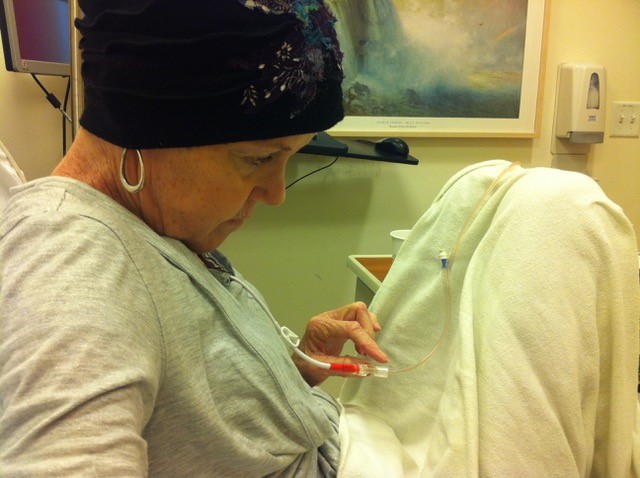In December 2011, Robin Beresford had a lot on her plate. She had just completed the first year of a clinical psychology program for her PhD. She was working as a physician assistant and also had a small psychotherapy practice of her own. Her son had just graduated from college and sadly, her mom had recently passed away.
A life-changing moment
One day, while out for a run, something didn’t feel right—Robin’s pulse was racing. EKG results at the doctor’s office were normal. But that night, she got a call saying her blood tests results were very abnormal. After additional testing, Robin was diagnosed with myelodysplastic syndrome (MDS).
Robin eventually learned she would need a bone marrow transplant and fortunately, two months later, her donor match was found. While preparing for transplant, testing revealed that her MDS had evolved into acute myeloid leukemia (AML). This meant she only had a few days to close her practice and prepare before starting chemotherapy.
The transplant experience
Robin’s AML had to stay in remission for six weeks before she could receive her transplant. She spent this time traveling and spending time with loved ones, then received her transplant in July 2012.
“It was fascinating to watch the blood stem cells flow into my body,” Robin shared. “This is a magical, amazing experience to see this happening in real-time and know this was my second chance—I literally got to hold it in my hands.”
Post-transplant, Robin suffered from graft-versus-host disease and felt pretty miserable. But in 2014, she began feeling better—so much better that she resumed a PhD program and re-opened her psychotherapy practice. “I didn’t know if I would have a future, but I did know that every moment is followed by another moment, and that helped ease my anxiety,” she said.
Finding new meaning
Now, at 73 years old, Robin has completed three years of classes and five years of studying other patients’ experiences with life-threatening illness for her dissertation, and this fall, she received her doctorate.
Collecting data from 13 participants who had received a stem cell transplant, Robin identified a common experience of an illness space/time characterized by the symptoms of the illness and treatment, disorientation and the unknown—where life, death and possibility co-exist. “Everyone I spoke with experienced a moment where their world suddenly changed, and they entered and then lived within this illness experience where death hovers nearby,” she said.
A unique feature of all her participants was that they found meaning post-transplant in giving back, by connecting with those going through transplant, and helping them to feel less alone. Robin is quick to caution, however, that her study was a qualitative study, and that the small number of participants may not be representative.
Robin hopes that her study will help clinicians understand better the individual experience of illness with stem cell transplant, and that that will give them resources to intervene and help patients feel less alone, understand their experience and be better able to find healing.
Robin’s own experience of illness gave her a perspective on daily life. A mantra of hers now, when faced with a worry or a perplexing problem or dilemma, is to step back and remind herself, “How happy I am to have this problem!” she said. “I find myself saying that a lot—it’s become one of my mantras.”
Robin is one of many patients who are seeking to contribute in ways that help others.
You can make a difference in the lives of patients too. Find out how you can support the cause.



